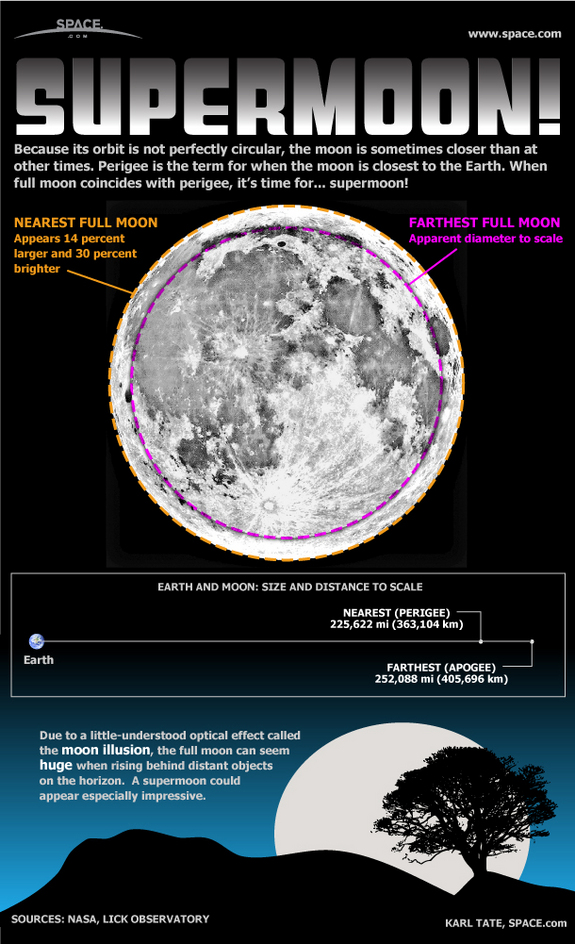
Source SPACE.com: All about our solar system, outer space and exploration
However, I cannot say I am thrilled about the media dubbing tonight's event a "supermoon". While this combination of events is relatively rare, calling it a "supermoon" helps inflame rumors and panic that this full moon will generate natural disasters, such as huge earthquakes or volcanic eruptions. It will result in a larger range in the tides (i.e., high tide will be higher than normal and low tide will be lower than normal) over the next two or three days, called a perigean spring tide, which could possibly cause minor coastal flooding.
However, as an astronomer, I am thrilled anytime the general public is interested in astronomical phenomena. In the modern world, I think we sometimes take for granted the incredible celestial bodies which light up our night sky. Personally, I am greatly anticipating observing the full moon with my telescope tonight.
The moon has always held a special fascination for me. I was even a little afraid of being out in moonlight when I was a child. I totally misunderstood the public services announcements so prominent when I was young which stated: Moonshine Kills. I'm afraid I took that quite literally and thought overexposure was a danger. LOL.
ReplyDelete